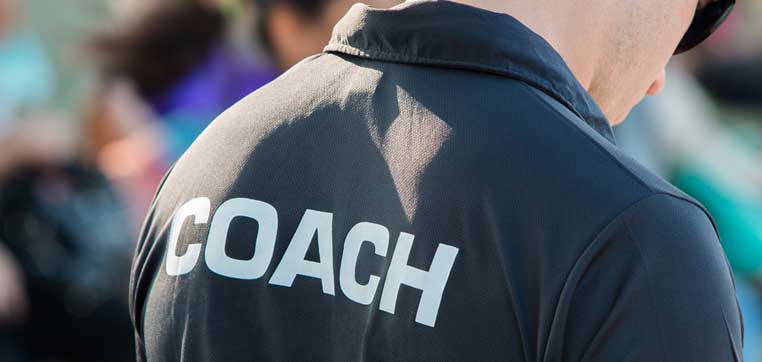 When high school athletes and their families start looking at colleges, it often comes as a surprise to many that the largest NCAA division, D3, doesn’t offer athletic scholarships. Students may receive academic scholarships and financial aid but no scholarship for participating in collegiate athletics.
When high school athletes and their families start looking at colleges, it often comes as a surprise to many that the largest NCAA division, D3, doesn’t offer athletic scholarships. Students may receive academic scholarships and financial aid but no scholarship for participating in collegiate athletics.
Softball
Do you have to specialize in a sport to get a scholarship?
 Should you play more than one sport in high school if you want to play at the college level? Focusing on a single sport would seem to provide players with the ability to develop advanced skills to stand-out from the competition. However, there are plenty of people out there arguing that playing multiple sports provides athletes with significant benefits, including in the recruiting arena.
Should you play more than one sport in high school if you want to play at the college level? Focusing on a single sport would seem to provide players with the ability to develop advanced skills to stand-out from the competition. However, there are plenty of people out there arguing that playing multiple sports provides athletes with significant benefits, including in the recruiting arena.
College Softball Recruiting Timeline
 According to an NCAA survey, 43% of D1 Softball players had their first recruiting contact in ninth grade or earlier. Another 35% had their first contact as sophomores. That means over 3/4s of all D1 sophomore players are being recruited by their sophomore year. This explains why, on average, D1 Softball players make their verbal commitments before the end of their sophomore year. I’m not saying it’s right. It’s crazy as far as I’m concerned. But that means softball players need to get their recruiting act together early!
According to an NCAA survey, 43% of D1 Softball players had their first recruiting contact in ninth grade or earlier. Another 35% had their first contact as sophomores. That means over 3/4s of all D1 sophomore players are being recruited by their sophomore year. This explains why, on average, D1 Softball players make their verbal commitments before the end of their sophomore year. I’m not saying it’s right. It’s crazy as far as I’m concerned. But that means softball players need to get their recruiting act together early!
When are D1 Athletes Recruited?
 When is it too late? When do you know that you should give up on playing D1 and start looking elsewhere because you haven’t heard from any coaches? While there will always be those who say “never say never” right up to the moment they find themselves enrolling in whatever last minute college they could get into, the truth is that most athletes are willing to face reality and move on once they know when. The questions is when is “when?” Thanks to an NCAA Survey completed last fall, athletes have a better estimate of “when” for most sports.
When is it too late? When do you know that you should give up on playing D1 and start looking elsewhere because you haven’t heard from any coaches? While there will always be those who say “never say never” right up to the moment they find themselves enrolling in whatever last minute college they could get into, the truth is that most athletes are willing to face reality and move on once they know when. The questions is when is “when?” Thanks to an NCAA Survey completed last fall, athletes have a better estimate of “when” for most sports.
Must Reads about the Odds of Playing College Sports and Receiving Athletic Scholarships
 Just a casual browsing of my blog would reveal that I’m not anti-athlete. When my son wanted to play baseball in college, I spent a lot of time educating myself about the college baseball recruiting process and shared the information here. However, there’s a big difference between playing college sports and receiving an athletic scholarship.
Just a casual browsing of my blog would reveal that I’m not anti-athlete. When my son wanted to play baseball in college, I spent a lot of time educating myself about the college baseball recruiting process and shared the information here. However, there’s a big difference between playing college sports and receiving an athletic scholarship.
What You Need to Know About College Recruiting: Coaching Changes
 If you have even the slightest interest in college athletics, I don’t think it’s possible to have missed all the press on the college football post-season coaching changes. As coaches leave one school for another, there is the question about what happens to the players he recruited. And if you’re an existing, or hopefully soon to be, athletic recruit, the chances of finding yourself dealing with college coaching changes is more likely than you think. So keep up with the reading.
If you have even the slightest interest in college athletics, I don’t think it’s possible to have missed all the press on the college football post-season coaching changes. As coaches leave one school for another, there is the question about what happens to the players he recruited. And if you’re an existing, or hopefully soon to be, athletic recruit, the chances of finding yourself dealing with college coaching changes is more likely than you think. So keep up with the reading.
What Do College Softball Coaches Want-2016
 Three years ago I wrote a post on “What Do College Softball Coaches Want?” and with the new year, I thought I would revisit the topic and see what, if anything, has changed. This time I looked at the recruiting questionnaires of the top 13 D1 softball programs. Why 13 instead of 12 as before? No meaningful reason, I copied one row too many and had already started looking up information by the time I realized it.
Three years ago I wrote a post on “What Do College Softball Coaches Want?” and with the new year, I thought I would revisit the topic and see what, if anything, has changed. This time I looked at the recruiting questionnaires of the top 13 D1 softball programs. Why 13 instead of 12 as before? No meaningful reason, I copied one row too many and had already started looking up information by the time I realized it.
8 Infographics to Help You Understand College Athletic Recruiting
 If you’re a high school athlete or the parents of an athlete who wants to play at the college level, the sooner you understand the college athletic recruiting process, the sooner you can use the process rather than have the process control you. And while the chances of being paid to be an athlete in your particular sport may be minuscule, it can’t hurt having a grasp of some of the issue of paying student-athletes. I think the following infographics on college athletes provide a good place to start your education.
If you’re a high school athlete or the parents of an athlete who wants to play at the college level, the sooner you understand the college athletic recruiting process, the sooner you can use the process rather than have the process control you. And while the chances of being paid to be an athlete in your particular sport may be minuscule, it can’t hurt having a grasp of some of the issue of paying student-athletes. I think the following infographics on college athletes provide a good place to start your education.
Recruiting Quiz: See If You’re Ready to be Recruited to Play in College
 Are you ready to be recruited to play in college? Do you understand the recruiting process to make sure you’re ready to make the most of every opportunity? Or are you more likely to reduce your chances because you haven’t bothered to learn the necessary rules and expectations? Take the following quiz and find out if you’re ready to be recruited.
Are you ready to be recruited to play in college? Do you understand the recruiting process to make sure you’re ready to make the most of every opportunity? Or are you more likely to reduce your chances because you haven’t bothered to learn the necessary rules and expectations? Take the following quiz and find out if you’re ready to be recruited.







